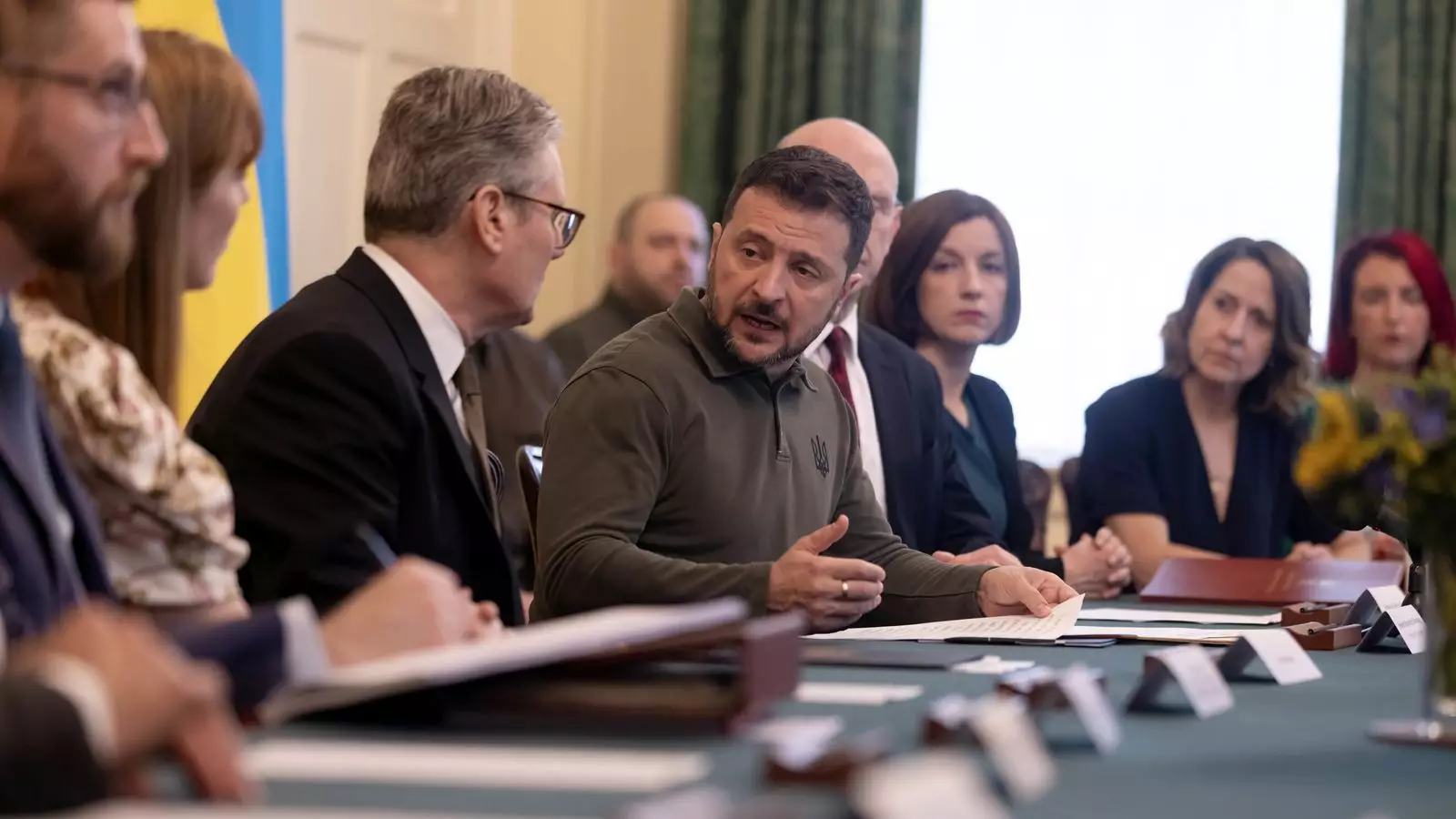In the face of evolving global threats and geopolitical uncertainty, the call for increased defence spending has echoed throughout the corridors of power in the United Kingdom. Recent discussions among cabinet members reflect a concerning, yet necessary, shift in priorities towards bolstering the nation’s military capabilities. With world leaders acknowledging the pressing need for robust defence systems, UK Chancellor Rachel Reeves and her government colleagues are navigating the complex reality of financial constraints while striving to meet security commitments. The urgency of this discourse becomes even more pronounced given the backdrop of escalating tensions in the European theatre.
In a recent appearance on Sky News, Business Secretary Jonathan Reynolds clarified the collective stance of the UK government regarding defence financing. Contradicting speculation that Prime Minister Keir Starmer is preparing to override the Chancellor’s budget decisions, Reynolds emphasized a unified cabinet stance. He underscored the necessity of increased investment in defence, asserting that “most people in this country recognize the pressures the world is under.” It’s crucial that the leadership views military expenditure not merely as an obligation but as a foundational element of national prosperity.
Despite these assurances, the internal dynamics within the government reveal potential fractures. Reports suggest that while Admiral Sir Tony Radakin and other military heads are advocating for a defence budget that would constitute 2.65% of the UK’s GDP, Chancellor Reeves shows resistance to allocating additional resources this fiscal year. This dissonance raises concerns about strategic alignment and prioritization within the cabinet and whether national security will be adequately supported in the face of competing budgetary demands.
The challenge extends beyond internal government discussions, intersecting significantly with international diplomatic efforts, most notably in relation to the ongoing conflict in Ukraine. As reports reveal that discussions around a peace deal between the US and Russia are gaining traction, the onus falls on European leaders, including the UK, to reassess their financial commitments to defence. With the US projecting a pivot away from European conflicts, voices like those of Rachel Ellehuus from the Royal United Services Institute have called for NATO members to critically evaluate their spending strategies. She posits that the current 2% benchmark for NATO contributions is inadequate given the evolving security landscape.
This context necessitates that the UK government proactively forge a sustainable roadmap for defence investment. Maintaining operational readiness and investing in recruitment and conventional capabilities should be prioritized as a matter of both strategic foresight and immediate necessity. Given the precarious security environment, UK leaders must advocate not only for an increase in overall spending but for an intelligent diversification of investment that incorporates both conventional military strength and innovative technological advancements.
As political maneuvering takes place within the UK, Keir Starmer is positioning himself as a decisive player on the defence front. Anticipation surrounding his meetings with US leadership underscores a pivotal moment for transatlantic relations concerning security cooperation. As the Prime Minister cautions against divisions within NATO, Starmer is poised to carry a clear message of unity and shared responsibility to Washington. Aligning UK defence goals with those of the US will be vital in crafting a collective approach to global threats, particularly in light of the shifting dynamics regarding Russia.
Furthermore, with the impending discussions convened by French President Emmanuel Macron, European leaders must collectively address the elephant in the room: the adequacy of their defence spending in a formidable global landscape. As apprehensions regarding the reliability of American support grow, the urgency for a comprehensive evaluation of Europe’s own defense capabilities cannot be overstated.
The pressing need for increased defence spending in the UK is not merely an economic challenge but a strategic imperative. As Chancellor Reeves and Prime Minister Starmer navigate intergovernmental discussions, it is evident that the robustness of the UK’s military capabilities is intrinsically linked to the stability of Europe and beyond. Only through a unified and well-funded approach to defence can the UK ensure its sovereignty and contribute significantly to the global peace and security architecture of the future.


Leave a Reply